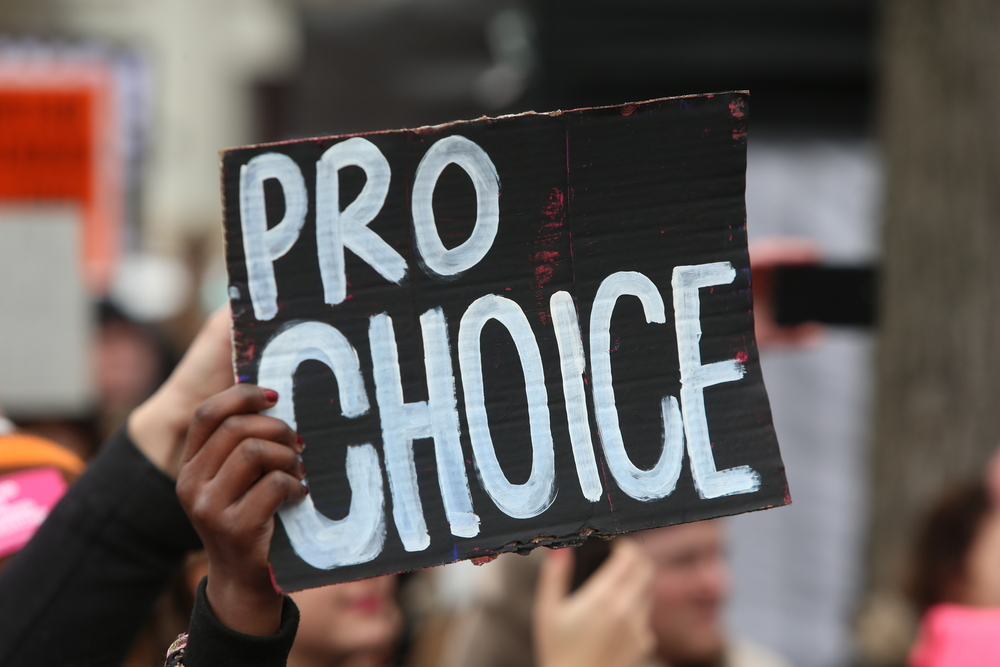Welcome to The Week in Reproductive Justice, a weekly recap of all news related to the hot-button issue of what lawmakers are allowing women to do with their bodies!
This week, we learned that President Donald Trump’s acting Attorney General, Matt Whitaker, felt uneasy prosecuting an anti-abortion extremist who attempted to burn down an abortion clinic, saying this was “inconsistent” with his personal beliefs. We also heard from a man who allegedly sexually assaulted a 15-year-old, who used anti-choice rhetoric on how “life begins at conception” to argue that she should actually be considered 16 years old, the state of Kansas’ age of consent, and that he could not be charged with taking advantage of a child.
The common thread connecting these comments is that those who hold anti-choice beliefs are not concerned with quality of life; they are merely concerned with forced birth. Their language condones, sympathizes with, or even motivates violence, directed at those who offer abortion care or those who receive it, and considering the underlying violence and disrespect for consent in anti-abortion violence, it’s hardly a surprise that an anti-choice talking point was used to justify sexual assault.
Lest we forget, the anti-choice movement is distinctly about control, punishment, and distracting us from the realities of how blocking access to abortion and birth control can ruin and even end lives. That’s because reproductive health care is health care—often life-saving health care—and lucky for us, it looks like new leadership is finally starting to talk about reproductive rights in this way.
New Planned Parenthood President talks beautifully simple strategy
This week, Planned Parenthood President Dr. Leana Wen announced her vision for the leading women’s health organization: “This is Health Care.”
Wen has gone on to specifically discuss her concerns with how reproductive rights and women’s health care are treated, set aside from all other forms of health care. “I’m deeply troubled by how health care—specifically reproductive health care and women’s health care—is singled out and stigmatized and attacked in a way that we would never find acceptable for any other aspect of health,” Wen said.
Abortion and contraception are health care, despite all legislative efforts to treat them differently. From the gag rule and allowing doctors to lie to vulnerable patients without consequence, to insurance coverage restrictions that could kill women, to the imposition of medically unnecessary building requirements, waiting periods, and more restrictions, it remains mired in stigma that translates into dangerous policies.
Merely by affirming that abortion and birth control are health care and centering our language around this critical reality, we could take the first step to changing policy and culture around reproductive rights for the better.
The new Congress is our best chance at taking on the Hyde amendment
The 116th Congress officially marks our best chance at repealing the Hyde amendment, a law that bans federal funding of elective abortion care, enacted in 1976. Every year, Congress has the opportunity to reauthorize or not reauthorize Hyde, and every year, it chooses the former, but next year could be a game-changer.
According to ThinkProgress, at least 183 Congress members oppose the Hyde amendment. Rep. Barbara Lee has already stated her intent to reintroduce the EACH Woman Act to ensure coverage of abortion care.
While the election of this many pro-choice House legislators is progress no matter what happens, ending Hyde is urgent for the safety and autonomy of low-income women across the country. As of 2018, 26 states restrict coverage of abortion care in some way, meaning, for thousands of women, abortion is a privilege, not a right.
Hyde was conceived specifically to appease the concerns of a minority of Americans who find abortion offensive, but aren’t particularly offended by American women dying in the absence of accessible reproductive health care, and it could end during this Congressional session if enough members of Congress step up and do the right thing.
Remember: Climate justice and reproductive justice are intertwined
Following the recent release of the alarming National Climate Assessment, this week, environmental journalism website Grist.org asked an important question: Why didn’t reproductive rights show up in the assessment?
As Grist’s Eve Andrews pointed out, the assessment included a number of considerations about climate change and social justice, such as how adjusting to a climate-changed world would be more accessible with equitable health care, education, and social safety net systems in place.
But in addition to the golden rule of how more human beings—especially in population dense areas—means more emissions and consumption, extreme weather conditions and forced evacuation from areas affected by climate change create a substantial barrier to accessing birth control and abortion care, especially if they are evacuated to areas with more restrictions on reproductive health care.
For example, as Andrews writes, “When an extreme weather event like Hurricane Katrina arrives, the legal barriers to basic things like birth control can become even more daunting. When women were evacuated away from coastal cities to inland rural areas after the 2005 storm, many reported difficulty obtaining contraceptive care […]”
Climate change disproportionately affects low-income communities of color, who are often the ones whose children are harmed with long-term health detriments by pollution, and who are forced to migrate as a result of climate change. In other words, it’s simply impossible to be “pro-life” and support hacking away at crucial, protective environmental regulations.
Tune in next week to see what lawmakers will try next in their never-ending mission to derail reproductive justice!
(image: Shutterstock)
Kylie Cheung writes about feminism and politics, with a focus on reproductive justice. Follow her on Twitter @kylietcheung, or learn more about her writing at www.kyliecheung.tumblr.com.
Want more stories like this? Become a subscriber and support the site!
—The Mary Sue has a strict comment policy that forbids, but is not limited to, personal insults toward anyone, hate speech, and trolling.—









Published: Nov 30, 2018 10:17 am